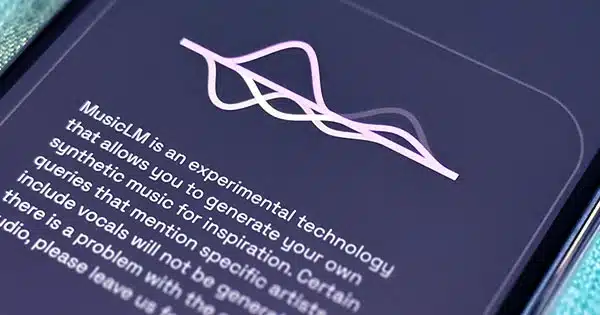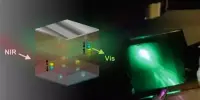Deep learning neural nets have begun a rampage through the creative arts industries, and if musicians believed they were safe from the AIs that haunt the nightmares of writers, artists, and others, think again.
We’ve seen a lot of innovative AI music projects in the last seven years or so, but MusicLM still managed to catch our attention when the paper and demo website was released earlier this year.
There was an AI that could reportedly turn a single-word query into a fully arranged, mixed, and recorded piece of music, replete with gibberish vocals. You could just tell an alien soundtrack composer where you desired various sentiments to rise and fall in your timeframe. A machine into which you could submit the most atonal hummed melody and have it generate what the idea would sound like completely performed by a salsa band, Gregorian monks, punk band, dubstep DJ, or shamisen player.
The demonstration was breathtaking. As a former video editor and producer, I was blown away by how powerful this equipment could be for soundtracking. As a musician, I was both shocked and inspired by the possibility of generating ideas.

Google has now made MusicLM available to the general public as part of their AI Test Kitchen, and I’ve been playing with it all afternoon. And I’m not as impressed as I was with the first demo.
It’s evident that Google has closed down a lot of this item, probably due to copyright concerns. It’s a plagiarist at heart, much like ChatGPT. It has consumed millions of hours of music generated by others, along with descriptions, and when it “creates” music, it is essentially guessing what will happen next.
The distinction is that, while this can be difficult to detect in a piece of AI-generated writing, it is very evident when you hear music. The drum beat can pick out Billie Jean in seconds over a terrible radio system in a busy cafe. When MusicLM puts its tokens together to make a song, bits capture your ear in the same way, indicating at where they originated from.
Google will not let you specify an artist in your queries, and the new demo excludes vocals. However, if you ask it for “compton gangsta rap with attitude,” or “paisley park purple funk,” for example, you’ll hear some very identifiable sounds, with enough pieces of vocal reverb remaining in the mix that you can pinpoint the artist, and occasionally the song, from which the AI has cribbed a specific moment.
That’s a good game. However, the technology as supplied for public use is simply not as nice as the demo tracks. Indeed, it frequently misses critical parts of text instructions, leaving out instruments you’ve specifically requested or writing in 4/4 even though you’ve requested 7/8.
While the overall tone is often suggestive of what you’re looking for, a lot of the music just doesn’t make sense. The odd guitar lick may be in tune with the rest of what’s going on, but much of it is nonsense, thoughts that begin and end. Rhythmic rhythms are created, but they frequently jump or tumble into random mayhem, sounding like your grandfather manually tuning his car radio. A catchy melody is hinted at, but it fades and you never hear it again.
Now, this is definitely an early stage system that, if the rest of the AI scene is any indicator, will grow a lot better at an alarming rate – and it’s also clearly been crippled in the interest of not getting sued. However, as it has been portrayed to the public, this thing is not yet ready for prime time.
That doesn’t mean it isn’t useful. Surprisingly, I think this item is a fantastic groove sample generator. It can’t seem to make anything that lasts long, yet there are flashes of brilliance that are very amazing. And, because you can download whatever it creates, a producer might quickly compile a big slate of interesting loops to build songs on top of – as long as you’re ready to live with the low-fi, mono samples.
Even if you took a MusicLM groove idea and rebuilt it from the ground up, you can get an idea you wouldn’t have gotten otherwise – and in music, that’s sometimes pure gold.
It’s certainly fascinating stuff – and my perspective may be hopelessly out of date by next week, when MusicLM may receive its first Grammy nomination. Take a peek at YouTuber Mike Russell experimenting with it, or go play yourself!













